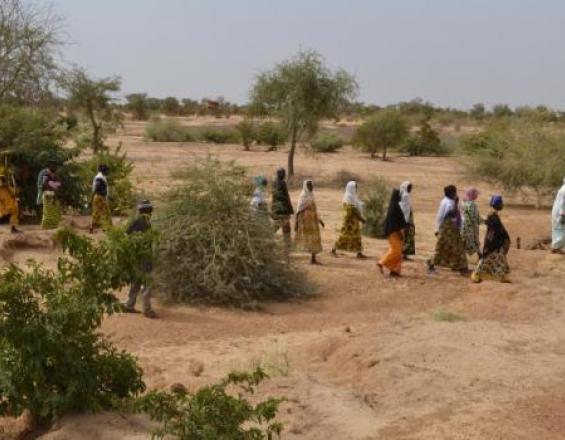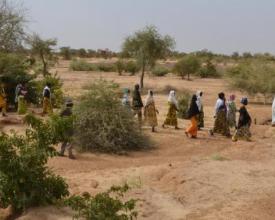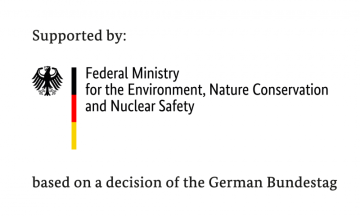
Difundir y compartir conocimientos sobre agricultura ecológica en Burkina Faso

Burkina Faso está sufriendo los efectos del cambio climático, como sequías, inundaciones, fuertes vientos y altas temperaturas, que se combinan con la presión ejercida sobre los ecosistemas por el cambio de uso del suelo y la explotación de los recursos forestales. Esto está provocando la degradación de la tierra y, por tanto, la pérdida de fertilidad del suelo, productividad, ingresos y seguridad alimentaria. Mediante un análisis participativo de las causas y efectos de los riesgos climáticos, las comunidades optaron por la reforestación, la jardinería orgánica y la protección de las riberas de los ríos para hacer frente a estos retos. Se utilizaron programas de formación y viajes de intercambio para desarrollar las capacidades de los beneficiarios del proyecto. Esta solución se publica en el marco del proyecto "Enfoques de adaptación basados en los ecosistemas: reforzar las pruebas y fundamentar las políticas".
Impactos
Esta solución ha mejorado el suministro de agua para las personas y los animales mediante el uso de técnicas agrícolas con infraestructuras climáticamente inteligentes, como muros de contención de piedra (que reducen la escorrentía y la erosión del agua), zaï (agricultura que utiliza la excavación de hoyos para captar agua) y medias lunas (excavación de hoyos para concentrar el agua en lugares concretos para nutrir los cultivos). Los ingresos han aumentado gracias a la mayor productividad de los huertos en las riberas de los ríos y a la implantación del "dinero por trabajo", que distribuye pagos a quienes adoptan las técnicas de agricultura climáticamente inteligente. Los viveros comunitarios produjeron más de 40.000 plantones para huertos domésticos y granjas, facilitando la reforestación. La reforestación protege las tierras de cultivo contra la erosión eólica e hídrica, ayuda a la recarga de las aguas subterráneas y protege las riberas de los ríos contra las inundaciones. La creación de 56 pozos de estiércol apoyó la horticultura ecológica. La formación de los agricultores sobre las distintas técnicas y cómo ayudan al medio ambiente ha contribuido a un cambio positivo de comportamiento y a una mayor capacidad de respuesta al cambio climático. La formación incluyó viajes de intercambio entre los beneficiarios del proyecto en Burkina Faso y Senegal. Las comunidades destinatarias informaron de que la vulnerabilidad se había reducido, especialmente en el caso de las personas que más dependen de los bienes y servicios de los ecosistemas, es decir, las mujeres y los hogares más pobres.





